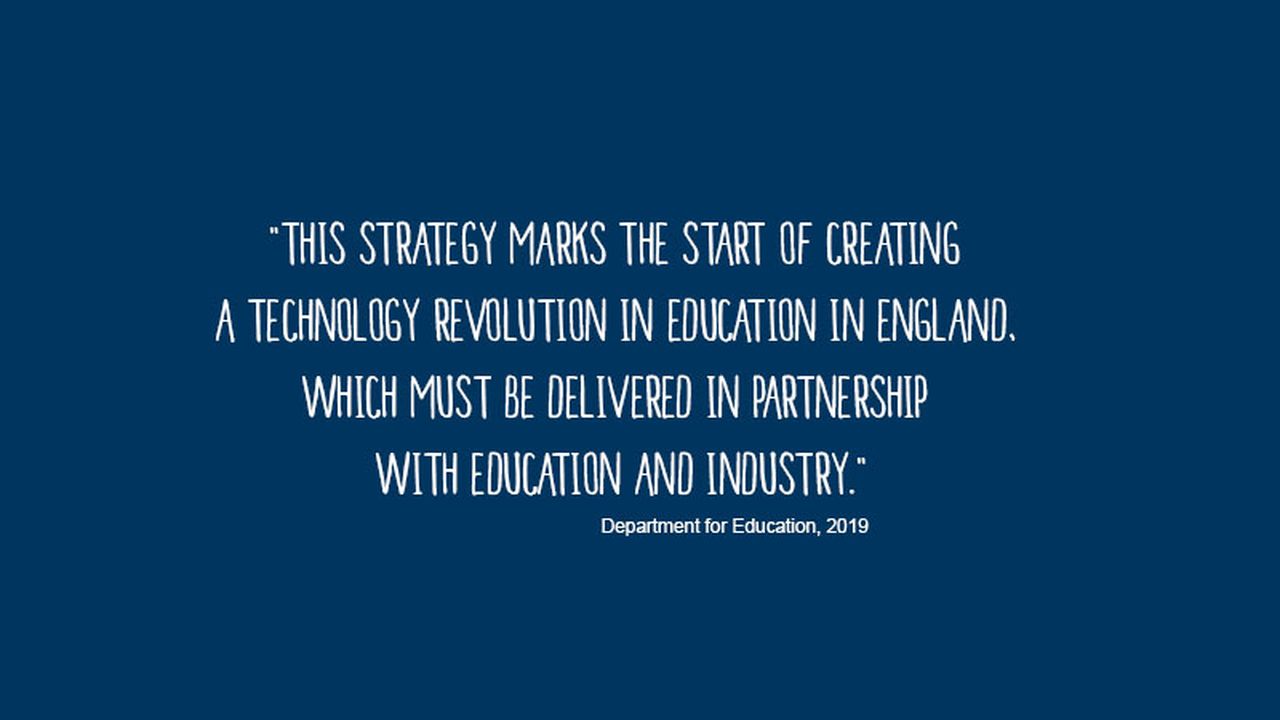Emphasising the ‘Ed’ in EdTech
In April 2019, the DfE released their EdTech strategy document. We look at our place in it.

The new EdTech strategy from the Department for Education puts emphasis on the ability of EdTech to cut teacher workload, support professional development and improve student outcomes. This has surely been the plan for most edtech companies for the past 30 years or so? Maybe for some, but not all. And how do you sort the wheat from the chaff as a budget holder? This was the warning from Damian Hinds when he voiced his concern over “around a thousand tech companies selling to schools, it’s by no means easy to separate the genuinely useful products from the fads and the gimmicks.”
Founder of Learning by Questions, Tony Cann, has always recognised the ability that tech has to revolutionise the lives of pupils and teachers, and it is that that is at the heart of LbQ. He decided early on that the focus of Learning by Questions must remain on the pedagogy - or the ‘Ed’ - to ensure the true capabilities of the platform to make a difference in education.
Driven by the needs of the classroom
One of the points emphasised in the EdTech strategy from the DfE is the need for technology to be driven by the needs of the classroom with a focus on five key areas of opportunity. Learning by Questions has two main aims: to improve educational outcomes for all pupils, and to reduce teacher workload. In doing so, LbQ helps to “drive a step change” with two of the key areas outlined by the DfE: assessment processes and teaching practices.
Team of teachers
The questions that are found on Learning by Questions are a vital cog in the LbQ machine that is seen in classrooms up and down the country. They are written by a team of highly skilled and specialised teachers. The teachers are tasked with ensuring Question Sets are aligned to the requirements of the National Curriculum in all the core subjects: maths, English and science. Our teachers also draw on their many years of experience in the classroom to inform their creation of feedback that deals directly with the common misconceptions. As a result of these well-cultured Question Sets, teachers are provided with reliable resources, and students have exposure to outstanding learning opportunities that aid their educational outcomes. Teachers are at the heart of the planning, production, editing and publishing stages of each and every question on LbQ, making it hugely beneficial for the pupils answering them.
Improving all the time
Teacher involvement doesn’t stop there. To ensure the continuous development of LbQ and to align ourselves with the constant changes in education (and technology), we partake in trials, evaluations and continuously ask for feedback from teachers at the chalkface. To continue to “drive a step change,” LbQ understands the vital importance of knowing what could be better, both within our content and the platform itself. Feedback from schools was what drove our most recent changes to the search function of LbQ - a change we hope will save teachers even more time, and make planning simpler, particularly for those less confident with technology in the classroom. We endeavour to improve all the time, using the voices of teachers and pupils to inform those improvements.
Initiatives and collaboration
Learning by Questions has been sponsoring BESA’s LearnED roadshows that promote and cultivate continuing professional development across the country. You can meet a representative from Learning by Questions at any of the remaining roadshows listed in our Upcoming Events page. As also mentioned in the EdTech Strategy document, we provide potential buyers of LbQ an opportunity to try before you buy via the LendED service. BESA’s LendED service, in partnership with the DfE, matches teachers with relevant EdTech products and software and helps educators to make more informed choices about what would best suit their teachers and pupils.
A technology revolution
Learning by Questions is so excited by the DfE’s promise to help both educators and EdTech businesses make a difference to the outcomes for pupils and we look forward to a future of working together with educators to realise the DfE’s aim…
“This strategy marks the start of creating a technology revolution in education in England, which must be delivered in partnership with education and industry.”
If you’d like to see how Learning by Questions is leading the pack with EdTech in the classroom, you can register for a free account and access over 1,100 Question Sets and 50,000 questions available to both KS2 and KS3 teachers of maths, English and science.